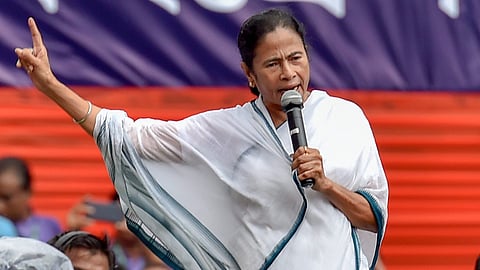

KOLKATA: After the Trinamool Congress (TMC) working committee meeting, it was decided that the party would launch a series of protests on November 30 and in the following days at various locations across the state to address the non-implementation of the anti-rape bill, Aparajita Woman and Child Bill, 2024.
The Bill, which was passed unanimously in the state Assembly on September 3, 2024, is yet to receive approval from the Union Law Ministry.
According to Law Minister Chandrima Bhattacharya, the delay in approval has prompted the TMC to organise protests statewide. She stated, "As the Bill has not been approved by the Law Ministry, we have decided to launch protests in various parts of the state against its non-implementation."
Bhattacharya also mentioned that the TMC has reshuffled its internal team, assigning different official spokespersons for Bengal and Delhi.
For Delhi, TMC MPs Abhishek Banerjee, Derek O’Brien, and Sushmita Dev have been designated as official spokespersons. In Bengal, spokespersons have been assigned to various departments: Partha Bhowmick for industry, Chandrima Bhattacharya and Amit Mitra for finance, and Moloy Ghatak for law.
However, TMC MP Sukhendu Sekhar Roy, who had been vocal during the RG Kar protest, was notably absent from the meeting.
The Aparajita Woman and Child Bill, tabled by Chief Minister Mamata Banerjee and Law Minister Moloy Ghatak, introduces severe penalties for rape convicts, including life imprisonment without parole and the death penalty if the crime results in the victim's death or leaves her in a vegetative state.
These legislative measures were initiated following a heinous crime in Kolkata, where a 31-year-old trainee doctor at RG Kar Medical College and Hospital was brutally raped and murdered. The incident, reminiscent of the 2012 Nirbhaya case, reignited nationwide protests.
Dubbed "Abhaya" by the local media, symbolizing "fearlessness," her case has drawn parallels to the Nirbhaya tragedy. In 2013, the national outrage following the Nirbhaya case led to the introduction of the Criminal Law (Amendment) Act, which imposed stricter penalties for sexual assaults, including life imprisonment and the death penalty for the most heinous crimes. These amendments underscored a zero-tolerance policy towards sexual violence, sending a clear and forceful political message.